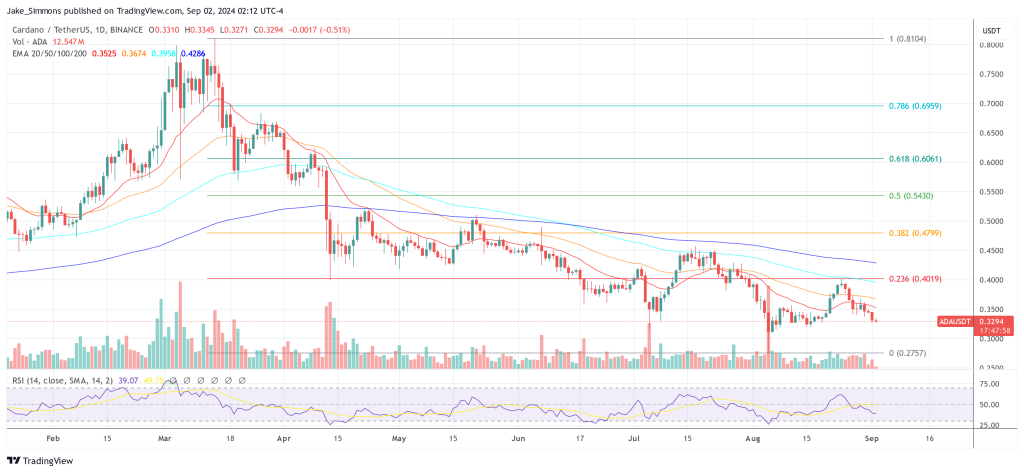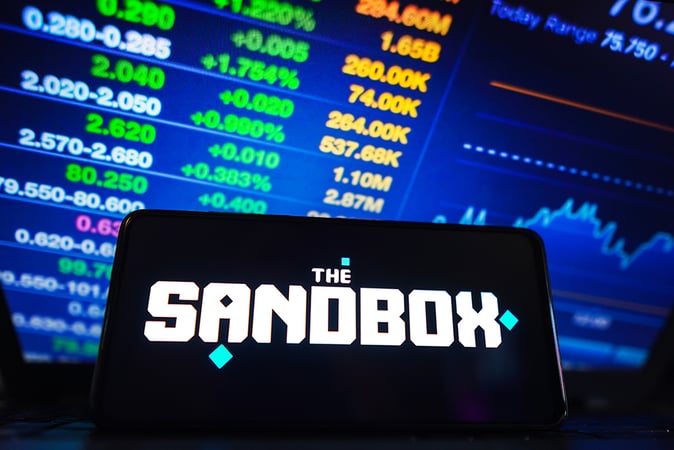The Cardano blockchain has achieved a significant milestone with the successful implementation of its Chang hard fork, which took place on September 1, 2024, at 21:44 UTC at block number 10764778. This update ushers in the “Conway ledger era,” part of a series of enhancements aimed at decentralizing the governance of the blockchain through the Voltaire upgrade phase.
Reactions From The Cardano Community
The primary feature of the hard fork is the transformation of the governance model on Cardano, allowing every ADA holder to submit proposals or participate in the decision-making process. The Cardano Foundation emphasized this democratic shift in a statement on X, declaring, “Today’s Chang hard fork marks a major milestone for the Cardano blockchain, ecosystem, and community––fulfilling the promise of a truly self-governing, decentralized network. Welcome to a new era of decentralized governance: Voltaire.”
Romain Pellerin, CTO at Cardano’s development company Input |Output highlighted the historical importance of the hard fork: “Chang upgrade was successful. ‘The power to decide, and the liberty to act, is the only true freedom.’ — Voltaire. Voltaire decentralized governance is activated, Cardano holders now have the power to decide the fate of the protocol on-chain. I have nothing more powerful to say than thank you for the hard work Cardano folks.”
Charles Hoskinson, the founder of Cardano, in a video update, likened the day of the hard fork to an “independence day” for the Cardano community. “Today September 1st 2024 is the day where we declare independence day, where the entire ecosystem, the community, every holder of ADA stands shoulder-to-shoulder as equals and they all have a say on the future of not just this protocol but what this protocol can do for everyone in the world,” he remarked.
Adding to the chorus of positive reactions, Dan Gambardello, a crypto analyst and vocal supporter of ADA, celebrated the completion of the Chang hard fork: “CARDANO CHANG HARD FORK COMPLETE! Cardano is officially a top 10 crypto, completely powered by the people. Now you, the ADA holder, have a say in Cardano’s future & more control over its development. This isn’t just another blockchain; it’s a community-driven powerhouse.”
From a technical perspective, the Chang hard fork activated Plutus v3, introducing advanced cryptographic primitives that support efficient zero-knowledge proofs through BLS12-381 curve pairings, versatile on-chain computations, and transaction signature validations via Blake2b-224 hash function, and Ethereum signature verification using the Keccak-256 hash function, which enables enhanced cross-chain interoperability.
The update also included improvements in the performance of smart contracts by introducing the “sums of products” encoding, which leads to smaller, cheaper scripts and up to 30% faster execution times. The developer toolkit was enhanced with new bitwise primitives such as integerToByteString and byteStringToInteger for low-level data manipulation, which are crucial for improving performance and cryptographic operations.
Furthermore, optimizations were made in script size and throughput to reduce costs and improve operational efficiency, while supporting industry best practices and enhancing cryptographic capabilities aligned with the latest standards.
Minor Bug Spoils Successful Activation
Despite the successful deployment of these enhancements, the hard fork experienced a technical hiccup. Intersect, a member-based organization within the Cardano ecosystem, reported an issue concerning ledger state snapshots that required immediate attention.
“Notice for node users: The hard fork working group has identified an issue with ledger state snapshots – requiring a hotfix to prevent longer syncs when nodes restart. A hotfix is already underway and will be available in the coming hours!” Intersect wrote via X.
Intersect described a glitch had emerged, necessitating a hotfix to prevent prolonged synchronization times when nodes restart. Specifically, nodes that restarted within 14 hours post-hard fork were not affected, but those restarted thereafter will require a replay from the genesis block. In response to this issue, a hotfix labeled as node version 9.1.1 was announced to be in preparation and scheduled for release in the coming hours.
For users affected by the glitch or those seeking more information, Intersect directed them to the dedicated hard fork Discord channel and advised them to monitor the Cardano GitHub repository where the hotfix will be published. As of press time, the development team was still finalizing the hotfix, with its release imminent, aiming to resolve the synchronization issues.
At press time, ADA traded at $0.3294.

Featured image from Shutterstock, chart from TradingView.com














